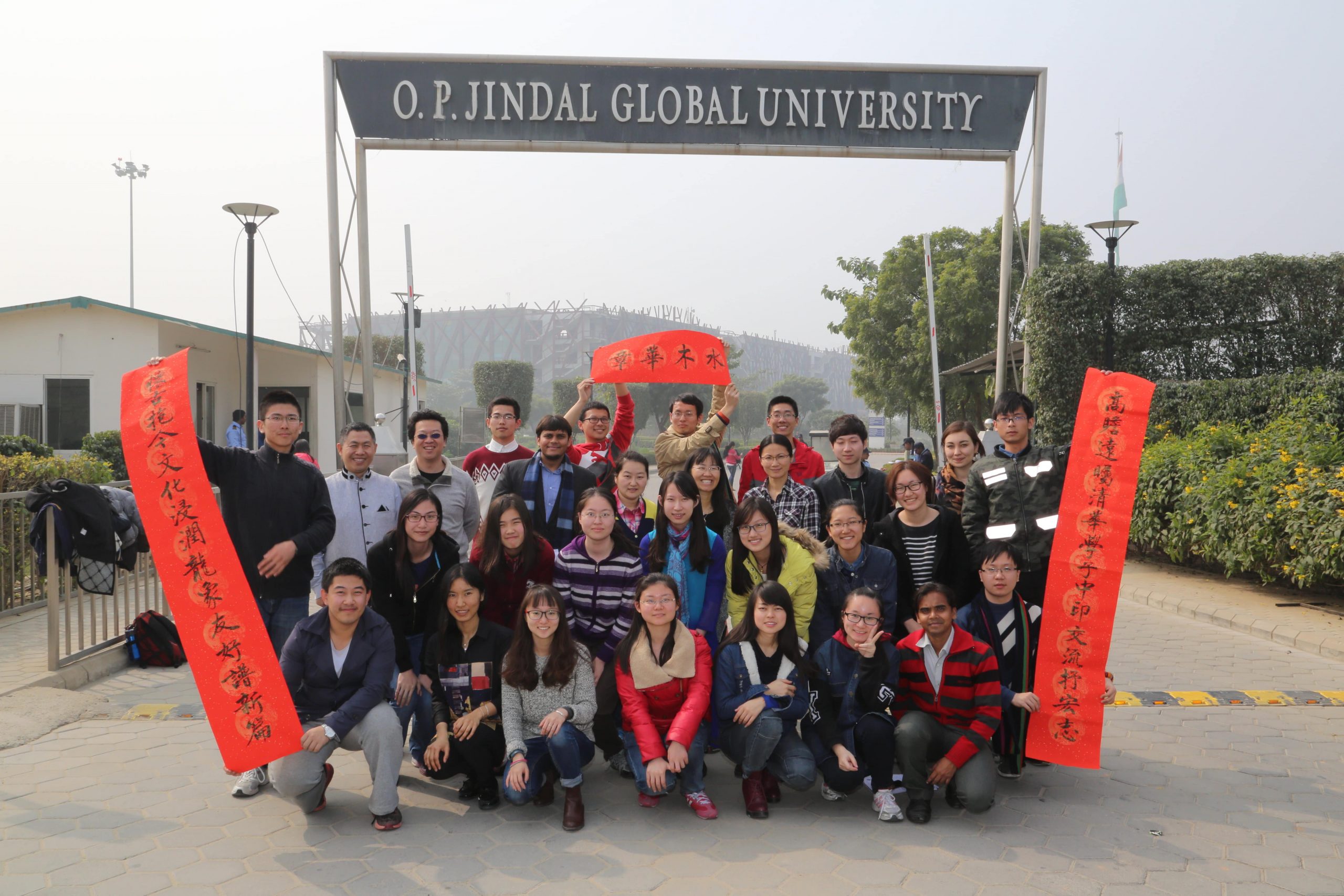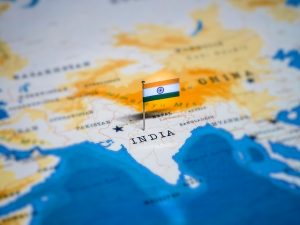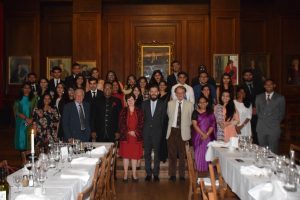The disciplines of diplomacy, law and business are heavy-weights in their own rights. Each has given rise to myriad specialisations of study and practice. Yet in the increasingly interconnected context of modern times, it is an integrated study of these three disciplines that renders a new meaning. There are many contemporary examples which involve the play of all the three tangentially and with equal importance—but one recent development hits close to home.
Border tensions between India and China have reached a fevered pitch. Twenty Indian soldiers succumbed to death in the recent violent clash at the Galwan Valley of Ladakh; Chinese casualties are yet unclear. The deadliest clash in decades has drawn international concerns and spawned domestic outrage ever since.
It’s a diplomatic issue that dates back to pre-Independence era. In spite of a number of diplomatic treaties, settlements, talks and agreements between then British-India and China, and later, the Indian government and China, some contested boundary regions remained without demarcation as the two countries failed to reach mutual agreements. Come 1962, the Sino-Indian War broke out over the Aksai Chin region and the present state of Arunachal Pradesh. Over the years, many diplomatic engagements have taken place without much progress. Even in the last decade as Prime Minister Narendra Modi has visited China a greater number of times in his tenure than any of his predecessors, the diplomatic ties have failed to resolve the border issues that have lingered on.
In a sense, the root of the issue is that the Line of Actual Control (LAC) has no legal backing yet. International boundaries are created through legal treaties between governments, but in the case of India and China in the disputed regions, the clarity has been missing in a long unresolved debate. LAC is just a concept, which is neither ‘absolute’ nor ‘controlled’; both the sides have different perceptions of it, giving rise to the border disputes.
Since the recent clash, the arguably knee-jerk reaction in India has been to boycott Chinese goods and businesses. Considering that China is India’s principal trade partner, with imports ranging from nuclear reactors, electronic machinery to pharmaceuticals critical to the current pandemic, the dramatic political and public moves have received criticism from many diplomats, businesspeople and sections of the general population. As it all comes under the scanner now, with domestic backlash against Chinese goods is at its peak, the challenge ahead raises questions about how India would manage its trade deficit and improve domestic manufacturing.
All eyes are set on how the tensions will unfold between the two Asian nations. After a long standoff, most recent meetings between the two sides suggest India and China have agreed to cool down on the border dispute. While the next steps are still tense, peaceful resolution will stand on the pillars of diplomacy, law and business. A fresh perspective and an imaginative approach that leans on and combines these factors is what could see the countries through this troubled time.
This is a revelatory example that brings into focus the pressing need for a holistic perspective on foreign affairs, international relations and global politics. Many young people interested in these areas typically decide to pursue specialised Master’s courses after graduation. International Relations is a popular choice as it allows students to learn about non-state actors, bilateral agreements, peace and conflict analysis, and world politics. Yet the traditional higher education space in India still operates in a narrow manner, with limited integration of polity with economics relations, strategic studies and trade.
That is why the Jindal School of International Affairs, as India’s first global policy school, decided to introduce the M.A. in Diplomacy, Law and Business in the year 2011. In a bid to create and spread interdisciplinary knowledge and equip young people with the integrated skills to contribute to national and international concerns, the two-year post-graduate MA DLB has carved a niche in a league of its own making and merit.
Here’s a look at five features of the M.A. in Diplomacy, Law and Business at Jindal School of International Affairs that sets it apart from any mainstream programme.
- An increasingly relevant blend of disciplines to make holistic sense of the modern world
The increasing interconnectedness of the globalised world due to greater density of cross-border contact and exchanges is rendering the practical and academic use of single-disciplined and methodologically incomplete studies obsolete. The lack of cutting-edge research in these fields in India is another cause for concern. In this context, a programme that combines the essence of International Relations, International Law and International Business is not only valuable but vital.
The academic rigour and holistic training offered by the multidisciplinary MA DLB curriculum is more suited to the dynamism that the industry demands from young political scientists and strategic experts. Students will cover 10 core courses on international relations, international economics, international business and research methods that is quickly proving to be a much-needed combination of study.
- A focus on emerging areas of study and a broad spectrum of cross-listed electives
Limited exposure, dated curriculum and unimaginative pedagogy can deter young people in the pursuit of academic excellence. Students of traditional programmes may remain unaware about niche domain specialisations or new and emerging career opportunities even after finishing post-graduate degrees in Political Science or International Relations.
JSIA has been breaking such barriers with an exhaustive list of elective courses that both complement the core subjects and explore different areas. Students are encouraged to take up electives across the different schools at O.P. Jindal Global University. International Human Rights & Humanitarian Law, Global LGBTQ Politics, South Asian Migrations, Drug Trafficking in America, Defence & National Security, Islam in Post-Colonial Societies and Israel Foreign Policy are some of the popular courses. The chance to study a broad range of subjects as diverse as criminal psychology, news media and journalism, public policy, brand management, design thinking, or environmental journalism and activism provides a truly eclectic learning experience.
Another aspect that students will appreciate is the opportunity to learn a foreign language of their choice—Mandarin, French, German, Arabic, Spanish, Persian or Italian.
- A pool of interdisciplinary, highly-qualified faculty from across the globe
By roping in interdisciplinary, internationally-qualified faculty from the world over, JSIA has uniquely positioned itself a cut above many traditional Indian universities. Elucidating the strengths of the diverse global faculty, Dean of JSIA, Prof. Shreeram Sundar Chaulia says, “Approximately 50% our faculty are non-Indians on a full-time basis. We also have a wide variety of regional coverage share—for example you learn about Latin America from a professor who is from Brazil. You will learn about South-East Asia from a professor who is from Myanmar. You will learn about Afghanistan from a professor who is from Central Asia. Two of the faculty members are former ambassadors and diplomats from different countries who can give the students the extra edge of practical knowledge of how the world of diplomacy and foreign policy really works.” O.P. Jindal Global University has maintained an impressive faculty-student ratio of 1:9, ensuring that students receive the keen guidance of their mentors.
- Diverse career options and opportunities with top national and global organisations
The 400+ alumni that the school has nurtured over the years have gone on to become versatile international affairs professionals working in the ever-expanding streams of Peace and Conflict Resolution, Area Studies, Political Journalism, International Justice, International Economic Development, Humanitarian Relief, Human Rights Advocacy, Political and Economic Risk Analysis, etc.
During the programme, students will be assisted by a dedicated team of faculty and staff to secure internship opportunities in India and abroad with inter-governmental, regional and non-governmental organisations, financial institutions, think tanks, diplomatic missions and in the United Nations system. An additional mandatory Guided Internship prepares students for a range of future plans. Graduates have found rewarding careers at BBC monitoring, Outlook India, Taylor and Francis, Ministry of External Affairs, Amnesty International, UNHCR, Asian Institute of Diplomacy and International Affairs, Pinkerton, India-China Economic and Cultural Council, Observer Research Foundation and various Embassies, among others.
- Partnerships with the best of global education institutions
JSIA has developed strong collaborations affording student and faculty exchange programmes with leading academic institutions worldwide. These include Indiana University’s School of Public and Environmental Affairs (SPEA), U.S.A.; School of International Service, American University, U.S.A.; Ryerson University, Canada; Faculty of Social Sciences, University of Wroclaw, Poland; Centre for European Studies, Katholieke Universiteit (KU), Leuven, Belgium; National Tsing Hua University, Taiwan; Kyung Hee University, South Korea; and Ritsumeikan Asia Pacific University, Japan.
Students can also earn a second Master’s degree in International Affairs from Queen Mary University of London, UK; University of Birmingham, UK; Geneva School of Diplomacy, Switzerland; and University of Leeds, UK; or attend summer schools in some of these universities.




